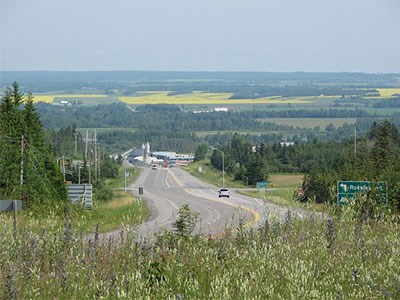A new, Temiskaming-based organization will give a pan-Northern voice to the interests of farmers across the North.
Advocacy, research and innovation, and the development of agricultural products through to commercialization are the three main pillars behind the mandate of the Northern Ontario Farm Innovation Alliance (NOFIA), formalized earlier this year.
“There’s been quite a bit of research going on, but we haven’t really been involved in what direction it’s actually going, as far as farmers on the ground,” said NOFIA chair Carman Kidd, who also serves as mayor of Temiskaming Shores. “We’re looking at trying to have a direct input as to what research is done, and try to develop that research right through to commercialization. That’s our main goal.”
NOFIA received funding in the spring and is now setting up subcommittees to represent agricultural interests in the various regions. Powassan, Cochrane, and Temiskaming all have representation on the board of directors; Thunder Bay, Rainy River, Algoma, and Manitoulin are other target areas.
Those sitting on the seven-person board all have farming backgrounds and have been involved in various commodities for the last 25 years, Kidd said.
“We’ve got a few small research projects that we’ve started this year, but we want to contact all these people and get some input from them as to what they want to see for next year and then start putting together our plans as to what research we want to see and what projects we want to go ahead,” he said.
Current trials are exploring the viability of growing corn under plastic; the hardiness of various wheat, soybean, and corn varieties; and the benefits of bioactive forages for sheep, which would deworm the lambs eating the forage.
Farmers are also working with the Northern Ontario Heritage Fund Corp. on tile-drainage and land-clearing projects.
The average time for a trial depends on the project, but varies between a year and three years.
In 2012, the province agreed to a two-year moratorium on the closure of the New Liskeard Agricultural Research Station, and NOFIA has been tasked with formulating a business plan to demonstrate how the centre can remain viable. When it’s complete toward the end of the summer, NOFIA will meet with representatives from the agriculture ministry and the University of Guelph to come up with a long-term plan.
Keeping the station open is integral to agricultural research in Northern Ontario, because the logistics are unique, Kidd said. Southern Ontario farmers use large feedlots and deal with a warmer climate, for example, whereas in Northern Ontario, the focus in on grass-fed beef and farmers face colder temperatures, resulting in a shorter growing season.
The North actually has more in common with producers on the country’s West and East Coasts than with those in southern Ontario, Kidd surmised.
“That’s why we don’t want to lose the research station that we’ve got here and have it all go to Guelph or Kemptville, because there is such a different climate, and it doesn’t matter if it’s crops or beef or whatever, there’s quite a difference between Northern Ontario and southern Ontario,” Kidd said. “So we want to keep that research here and develop our own way of farming in Northern Ontario.”
Eventually, NOFIA envisions partnerships with private investors, colleges and universities, including organizations like Algoma University’s Rural Agri-Innovation Network in Sault Ste. Marie and the Thunder Bay Agricultural Research Station.
In the past, there’s been too much duplication of research, sometimes three or four times over, which is a waste of effort and funds, Kidd said.
“So we want to start coordinating all the research and make sure it’s just done once, and make sure it’s done well, and work with the private sector and try to make sure the money’s spent wisely,” he said.
Overall, he said, agriculture’s seen a huge boost in the area spanning the last several years and remains quite stable.
The rising price of land in southern Ontario has resulted in several families moving north to farm, while the success of the 2009 International Plowing Match, held in Earlton, did a lot to raise the visibility of the sector and contributed to the resurgence, he added.




